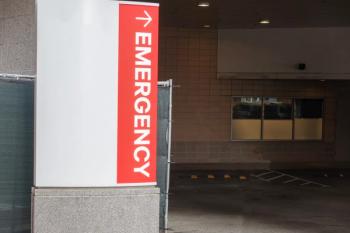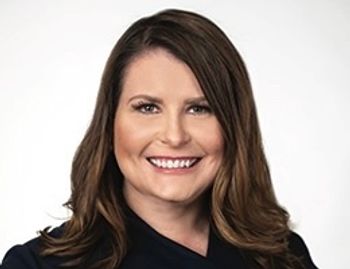
Hospital pharmacies are worried about drug shortages, staffing and federal oversight
Health systems are wrestling with supplies and expect more oversight on the federal 340B drug pricing program. Lauren Forni of Bluesight talks with us about the challenges pharmacies are facing.
Hospital pharmacies are continuing to struggle with shortages of key drugs, including cancer drugs and other life-sustaining medications.
Drug shortages remain the most pressing problem for hospital pharmacies, with three out of four hospital pharmacies (75%) citing it as their top concern, according to Bluesight’s recent
Lauren Forni, senior director of clinical strategy for Bluesight, tells Chief Healthcare Executive that shortages are hampering hospital operations.
“I think that's another kind of hot topic that continues to be top of mind year over year,” Forni says.
Indeed, hospital pharmacies have cited drug shortages as their biggest problem for the last six years the survey has been conducted.
“There is such a large number of medications that are on drug shortage on an ongoing basis for teams to manage,” Forni says. “And some of them are life-saving, life-dependent, medications that hospitals need to work around. And some of it stems from materials that are used to make the medications. Others stem from just an increase in demand and supply just didn't catch up yet. So there's a variety of different reasons for the shortage impacts.”
There were 270 active drug shortages in the first quarter of 2025, according to the latest
Hospitals are also dealing with
Many hospital pharmacies are also dealing with another kind of shortage that’s all too familiar for those in healthcare: staffing.
More than half of all hospital pharmacies (55%) said staffing shortages are posing a problem, which can affect both operations and patient safety, the survey found.
“I think with smaller systems and with larger systems, it's always the resource requirements of all of your different initiatives and staffing continues to be a challenge,” Forni says. “And the workload never, never decreases, right? It only increases.”
Health systems are moving to centralize more of their pharmacy efforts, as opposed to having staff responsible for different efforts at each site, she says.
Most hospital pharmacies are expecting increased oversight in
“There's a lot up in the air, and there's a lot of changing regulations, both at the state and federal level,” Forni says.
The 340B program has drawn increasing scrutiny, with
“We're constantly trying to bring the drug spend down, but you need to have the medications you need to care for your patients, and the 340B program helps offset a lot of that financial burden and allows hospitals to function and be able to care for their patient populations,” Forni says.
Most hospital pharmacies are struggling with the problem of drug diversion, which involves staff or others taking medications that are intended for patients. Two out of three hospital pharmacy professionals (66%) reported a drug diversion event in the past year, according to the survey.
Even with greater attention to the issue and software tracking inventory, some employers “get creative, and they find ways where they can maybe avoid detection for a period of time,” Forni says.
Hospitals are increasingly turning to digital tools to automate some processes and ease some demands on their staff and gain more visibility of their pharmacy needs, she adds.
While technology tools are available to help improve management of drug purchasing and automation tools to manage supplies or potentially spot drug diversion events, some hospitals are only just beginning to utilize those tools.
“I think hospitals are just now starting to explore, understand and adopt,” she says.
Virtually all hospital pharmacy professionals surveyed (95%) said that they are looking to streamline pharmacy purchases, especially to manage prices and supply chain disruptions.
“Especially with the landscape of where healthcare is right now, and budgets are always of concern across the health system, a big cost center is spending money on medications, and it's not very clear and transparent on how to optimize that,” Forni says.
“So you're constantly trying to optimize your spend, but it's challenging to do so because there's not a ton of transparency and it's a lot of manual work,” she adds.






















































































